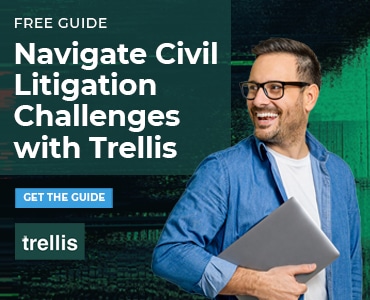“You can go your own way.” I may be dating myself with this reference to the Fleetwood Mac tune from the 1970s, but this is an invitation the states have readily embraced when adopting the rules governing lawyer advertising.
Lawyers frequently surprise me with their assurance that they have no concerns because they are in compliance with the American Bar Association’s Model Rules of Professional Conduct. They are ignoring that those model rules are nothing more than suggestions that the ABA encourages states to adopt. And when it comes to the section governing lawyer advertising, I do not believe that any state has adopted the current ABA Model Rules verbatim — and no two states have an identical set of rules. While every state has now adopted the ABA architecture for the rules, they add and subtract specific provisions they believe to be important.
State Advertising Rules: Least Restrictive, Most Restrictive and Some Aberrations
While the state rules are not on a true continuum from least to most restrictive, since often the rules are simply different, let’s take a look at some of the provisions of the least restrictive and most restrictive states, as well as some of those straight-up aberrations.
First, we should note that ABA Model Rule 7.1 prohibits communications that are false or misleading. Although not every state agrees on exactly what is misleading, this rule is the cornerstone of the regulation of lawyer advertising in every state. Some say the rules do not need to go any further than this prohibition, but no state has yet gone that far.
However, Virginia and D.C. have stripped out many of the specific provisions that are found in other states.
They do not specifically govern the communication of specializations, and they do not include what I call “housekeeping” rules, discussed below. They both continue to restrict solicitations, although quite differently. Virginia’s rules on solicitation are based on, but not identical to, ABA Model Rule 7.3, while Washington, D.C., adds prohibitions of solicitations around the courthouse and jail.
Other states are considering changes to their rules governing lawyer advertising as part of their regulatory reform initiatives.
These include Arizona, California, Illinois and Utah. Utah proposes stripping out all but the prohibitions of false or misleading communications and interactions involving coercion, duress or harassment. If approved, this would be the least restrictive set of advertising rules among the states.
Next, we have a broad swath of states with rules based on some version of the ABA Model Rules, usually tracking those provisions prior to the ABA’s amendments to the rules in 2018.
For example, an earlier version of the Model Rules required mailed solicitations to those known to need specific legal services, such as car accident victims, to be labeled as “Attorney Advertising.” The current Model Rules no longer include that provision, but most states still have this labeling obligation.
Periodic changes to the ABA Model Rules should serve as a reminder for lawyers to check the rules of their states.
States with rules at the more restrictive end of this continuum impose disclaimer requirements and screening obligations.
Some disclaimers may apply to all advertisements, while others are contingent on the content of the ads. For example, Alabama Rule 7.2(e) requires all ads to state: “No representation is made that the quality of the legal services to be performed is greater than the quality of legal services performed by other lawyers.” From time to time, I hear from firms that their lawyers do, in fact, perform services of greater quality than other lawyers and, therefore, this statement is a violation of the prohibition against misleading advertisements!
A few other states require disclaimers when a lawyer advertises contingency fees, uses images of models to stand in for those of lawyers or clients, or otherwise creates a dramatization or simulation. Sometimes the exact language of the disclaimer is prescribed. For example, if an Illinois firm advertises that a lawyer is a specialist or expert under some circumstances, the ad must also state that the Supreme Court of Illinois does not recognize certifications of specialties in the practice of law and that the certificate, award or recognition is not a requirement to practice law in Illinois.
Currently, Florida, Louisiana, Nevada and Texas require lawyers to submit advertisements for screening under various circumstances. Some of these states include safe harbor provisions precluding the requirement for screening. The rules also exclude types of communications, such as websites. Again, lawyers need to check for the details in their states.
Some states have rules that are simply out of the ordinary.
A few states, such as Arkansas and Missouri, obligate lawyers who send solicitations to do so only through “regular mail” or “U.S. mail.” These rules serve to prohibit offers for legal services sent through email.
Other states include a litany of housekeeping rules that create landmines for lawyers who are not focused on compliance. Some examples, followed by my snarky comments, are as follows:
- In Florida, ads may not be “unduly manipulative.” According to the comments accompanying the rule, showing a car accident is acceptable, but showing one with graphic injuries is not.
- Florida and Pennsylvania prohibit the use of celebrity endorsements. Sorry, Coach Ditka.
- In Indiana, a lawyer may not advertise in a way that appeals primarily to a person’s fear, greed or desire for revenge. No pot of gold at the end of that ad’s rainbow.
- In Missouri, a lawyer may not send a written solicitation that vilifies, denounces or disparages any other potential party. Texans tell me that “bless his heart” is disparaging. So better steer clear of that.
- In New Jersey, advertisements may not depend on absurdity. Television commercials may not include drawings, animations, dramatizations, music or lyrics. Sorry, Charlie Brown.
- Pennsylvania prohibits ads of those who are not lawyers from portraying lawyers in ads. Beware of clip art!
- In South Carolina, an advertisement may only include “a minimal amount of content designed to attract attention to and create interest in the communication.” Explain that to your ad agency.
On a Bright Note
Can’t leave it there, so I’ll finish on a bright note. Sometimes if you dig down far enough, you will come up with something that helps broaden your communications. For example, New York begins its Rules of Professional Conduct with a section on definitions, as do many states. However, unlike other states, New York defines “advertisement.” Within this definition, we see that communications to existing clients or other lawyers do not constitute an advertisement. Therefore these communications do not require compliance with the rules that otherwise impose limits on advertisements.
So, don’t follow the ABA Model Rules; follow the rules of your state. Look for those landmines and tread carefully. Take the time to drill down and look for the exceptions that can make your advertising more effective.
Illustration ©iStockPhoto.com
Subscribe to Attorney at Work
Get really good ideas every day for your law practice: Subscribe to the Daily Dispatch (it’s free). Follow us on Twitter @attnyatwork.






















